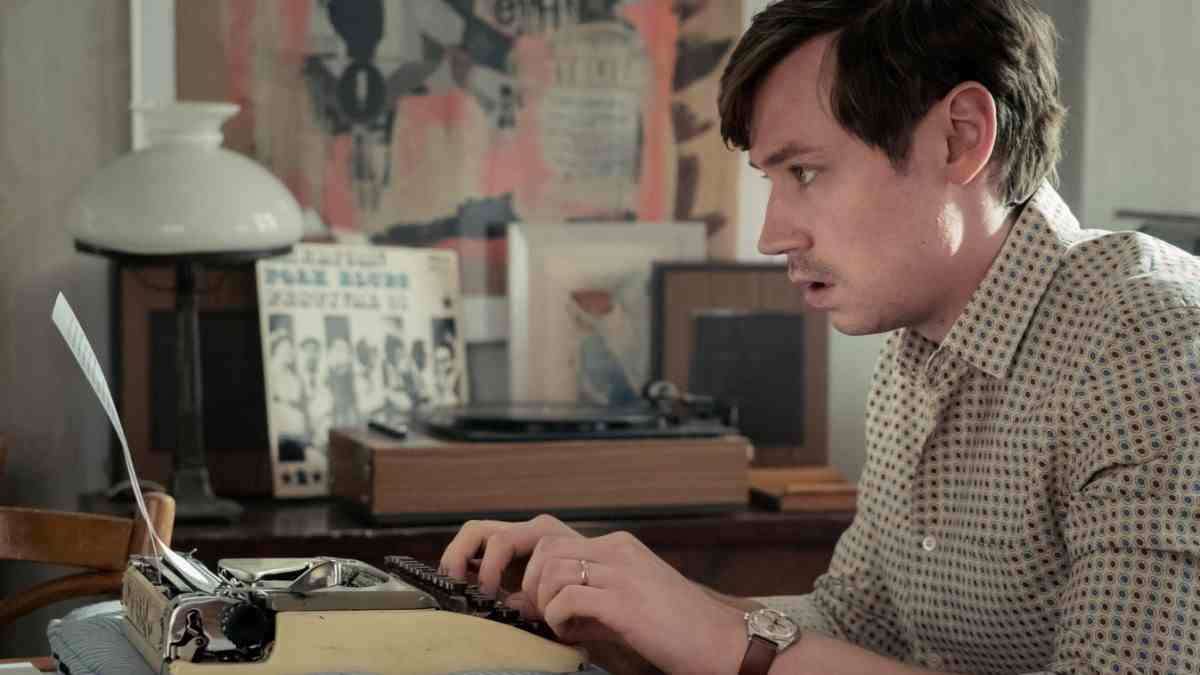Sure, it can happen that you happen to become a Stasi officer. As a young, still somewhat aimless man you stand at a crossroads. Between the quiet prefabricated buildings in East Berlin in the early 1980s, the streets are so empty that one of those balls of undergrowth comes blowing past, which in Westerns are a symbol of the absolute desolation of the desert. But the traffic light shows the red man, so you, as a good GDR citizen, stop. Waits and takes his book out of his pocket. After all: “On the Road” by Jack Kerouac. Perhaps the young man is not quite lost yet.
A few cuts later, the boy from the traffic light, his name is Ludger Fuchs (David Kross), but in a gray uniform of the Ministry of State Security. The Stasi watched him at the intersection through a hidden camera – and the senior officer, Henry Hübchen, with his nasty, nicotine-blackened teeth, liked what he saw in terms of willingness to follow the rules. In a windowless room, Ludger is now given his first assignment: he is to infiltrate and decompose the alternative scene from Prenzlauer Berg, which the ministry calls “negative-decadent”.
He gets a pair of Levi’s jeans from an intercepted western package and his hair tousled, off he goes to the artists and church affiliates, who are slowly becoming too dangerous for the state. The problem: Ludger gets a little too comfortable in the squatter scene very quickly. This is also due to the beautiful, free-spirited women dancing in semi-transparent hippie dresses against the light in the evening sun. So everything turns out a little differently and in the end it’s not half as bad in this big slapstick.
At the same time, in his new film, Leander Haußmann tells how Ludger brings his Stasi files home in a cloth bag in contemporary Berlin. He lives in a beautiful educated middle-class apartment in Prenzlauer Berg and his wife, children and grandchildren have gathered to celebrate the proof of his dissidence together: Ludger Fuchs, played by Jörg Schüttauf with his hair still tousled but now gray, is now a famous figure GDR writers and oppositionists. That’s why Tom Schilling, a dedicated archivist, is there when the files are opened. So posterity is sitting on the sofa, looking into Ludger’s past, and he’s not particularly happy about it: when it comes out that he was a second lieutenant in the Stasi, not only will his career and his marriage be over, but his entire life story.
After everyday youth in the shadow of the wall in “Sonnenallee” (1999) and the GDR military service in “NVA” (2005), Leander Haußmann has now taken on the Stasi, the darkest department of the workers’ and farmers’ state. The institution that permeated an entire society with its network of spies and unofficial employees with distrust and fear, that tortured, locked away, destroyed lives. In “Leander Haussmann’s Stasi comedy” the only dark places are the offices of the Ministry for State Security on Normannenstrasse. Ludger’s colleagues are dabbling, driving through the bohemian quarter like tourists with cameras in hand, wearing beige pensioner’s jackets and saying woodenly “fetzt urst” when they want to appear hip in the wine bar. And Stasi boss Mielke? Is a spoiled fat child who prefers to think about his birthday party instead of about inner security: a big decadent party in the most unworkable rococo style.
The film is a cozy, all too harmless pleasure
The question that history-conscious feuilletons now have to ask is, of course, is it permissible to make fun of the Stasi? And the first answer is, of course, yes. Of course you can. Laughter takes the power away from evil and gives it to the weaker. But the second answer is: It has to be really funny. And with topics like the Stasi, which made life very difficult or even impossible for thousands, interesting comedy could emerge from looking into the abyss. “Get Out” demonstrated this using the example of American racism, and Quentin Tarantino did it with all sorts of dark chapters in world history. In comparison, “Stasikomödie” is a comfortable, all too harmless pleasure. One shot of the film, in which the spies were also spied on, blurs the distinction between perpetrator and victim: Aren’t we all a bit Stasi? Then a Vita Cola.
The Stasi spies here are nothing but dumb fools.
(Photo: Constantin Film)
And yet: If you’re willing to refrain from this lemonadization of the story, then “Stasi Comedy” has a few very endearing sides. This is mainly due to David Kross, who hasn’t lost any of his boyish charm for a long time. But it is also due to the serious nostalgia with which Leander Haussmann shows Prenzlauer Berg in the 1980s. The duet in the queer wine bar cabaret between GDR star Karsten Speck and Alexander Scheer (“Sonnenallee”, “Gundermann”) is so touching that one would like to see a whole film about the two. And Mielke’s decadent rococo ball is a wonderful image of a state elite in decline.
At the end a child is born in the apartment of Ludger Fuchs of the present. The doctor recommends buying postpartum pads “if you don’t want it to look like Tarantino made a movie here soon”. You really don’t have to be afraid of that in “Stasikomödie”.
Leander Haussmann’s Stasi comedy, D 2022 – director and script: Leander Haußmann, camera: Michal Grabowski, music: Malakoff Kowalski. With: David Kross, Henry Hübchen, Jörg Schüttauf, Deleila Piasko, Antonia Bill. Theatrical release: May 19, 2022.

